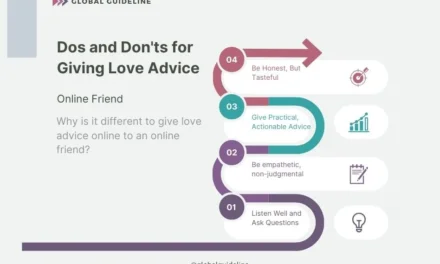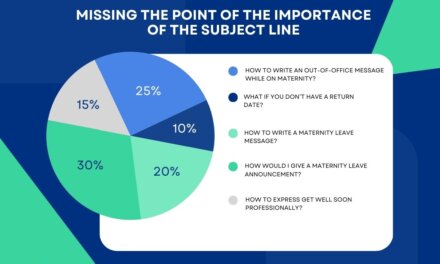Although resignation may be a personal matter, the process applied affects both his current career and professional relationships. Always cited is sending an email resignation letter with a 4-week notice as the best practice. This guide looks into the benefits of this approach: how to write a good resignation email letter and why giving a longer notice can be so advantageous.
Table of Contents

Understanding the Importance of Giving 4 Weeks’ Notice
Why 4 Weeks’ Notice is Beneficial
Giving 4 weeks of notice in a resignation email can do the following:
- Ensure a Smooth Transition: It gives adequate time to the employer to find a replacement or manage your workload and ensures that the projects and responsibilities are handed over smoothly.
- Demonstrate Professionalism: It respects the company’s needs with a professional transition and reflects positively on your work ethic.
- Maintain a Good Relationship: It’s important to leave on good terms. Four weeks of notice gives you some buffer time within which you can address concerns, complete your tasks, and even say goodbye to colleagues properly.
How to Write an Email Resignation Letter with 4 Weeks Notice
The basic requirements in writing a resignation email letter with a 4 weeks notice are as follows:
Construction of Email Subject
Be direct with your email subject line. Your email subject line should be clear and to the point so that your recipient will notice and understand it. Here are examples:
- “Resignation Letter – [Your Name]”
- “Notice of Resignation Effective [Last Working Day]”
- “Formal Resignation Letter from [Your Name]”
Structure of Email Resignation Letter
- Opening Line: Start by formally addressing them and stating your intent to leave the organization.
- Notice Period: Mention your last working day, ensuring it is a 4-week notice period.
- Reason for Resignation: You can briefly mention the reason for your decision if appropriate.
- Gratitude: Thank them for the experience you have gathered from your job or the opportunities given to you by the company.
- Offer Assistance: Offer them assistance in regard to the transition process in the easiest possible handover.
- Closing: Close with a professional closing and add your contact information.
Sample Resignation Letter Email
Subject: Resignation Letter – John Doe
Dear [Manager’s Name],
I am writing to formally announce my resignation from my position at [Company Name], effective four weeks from today. My last working day will be [Last Working Day].
This has not been an easy decision, and I am grateful for the numerous opportunities and experiences I have had here. I am committed to making this a smooth transition and certainly am more than willing to help train a replacement or pass on responsibilities.
Thank you for your understanding and support. I hope to keep in touch and wish the company continued success.
Sincerely,
John Doe
Key Considerations When Deciding to Resign
Evaluate the Resignation Decision before sending a Resignation Letter Email
The following are the areas that one should consider when submitting the resignation email:
- Current Job Satisfaction: Verify that the decision to leave is made for the right reasons.
- Future Opportunities: Imagine if the new opportunity taps your career objective and promises better opportunities.
- Impact on Your Career: What effect would you leaving your current position have on professional relationships and future job opportunities?
Benefits of Providing a 4 Weeks’ Notice
- Better Job Search: A longer notice period will allow you to leave your job on good terms, which may really come in handy when looking for a new job.
- Professional Reputation: This would prove that you’re a professional if you give good notice. So it is likely to make you look reputable in the industry.
- Easy Transition: You and the employer will have enough time to handle the transition seamlessly, reducing unnecessary stress and possible problems.
Job Interview Questions Related to Resignation
This question may crop up while preparing for job interviews right after your resignation. So, you will know how to answer such questions:
Common Interview Questions
- “Why did you decide to leave your previous position?”
- Seeking new challenges, career growth, or anything that aligns with long-term goals are positive reasons.
- “How did you handle your transition period at your previous job?”
- Bring out your commitment to a smooth handover and any steps taken for continuity.
- “What have you learned from the experience of resigning?”
- Offer any lessons learned about professionalism, time management, or communication.
How to Answer Resignation Questions
- Be Honest but Tactful: Give truthful answers without speaking ill about your former employer.
- Focus on the Positive: Bring out what you learned and how the experience prepared you for future roles.
- Prepare Examples: Examples of how you handled your resignation and the transition professionally.

FAQs
Q: Can one email a resignation letter, or shall it be a formal letter?
A: It is perfectly acceptable to email resignation letter. Most people prefer it because of its convenience. Just ensure that the email sounds professional and follows the structure of a formal letter.
Q: How do I write a resignation letter email?
A: Clear subject line, statement of intention to resign along with your notice period, thankfulness, offer of assistance during the transition period, and professional closing.
Q: What should a letter of resignation email consist of?
A: Formal greeting, statement of resignation and notice period, brief explanation of reasons for leave, thankfulness, offer to assist in the transition process, and professional closing.
Q: What would be the subject of sending a resignation letter via email?
A: The subject line needs to be simple and straightforward. For instance, it could be “Resignation Letter – Your Name” or even “Notice of Resignation with Effect from [Last Working Day]”.
Q: How do I make things easier for myself after my resignation?
A: Inform your employer clearly, ensure a proper handover of tasks, and provide training to your replacement if necessary
Conclusion
Writing a 4-week notice in your resignation email is businesslike and helps you and your employer. It shows regard and dedication by offering a sufficient transition period to prove advantageous to your career and future prospects. A well-written email resignation letter, conducted in a professional way, guarantees that you can leave your employment on good terms and maintain those contacts that might be important in your industry.
More on resignation letter writing and career change-over are available at Global Guideline. Learn to manage your career changeovers smoothly and in a professional manner.










